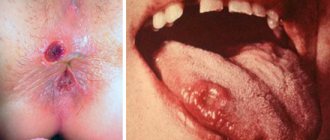A nephrologist is a specialist who diagnoses, treats and prevents kidney disease. It makes sense to assume the relevance of kidney disease when symptoms such as lower back pain, cessation or slight reduction in urination, the appearance of blood or protein in the urine appear (in some cases, these manifestations are noted visually, in some - when taking tests, which is additionally confirmed directly by a specialist , studying their results). Meanwhile, in some cases and at some stages of kidney disease, symptoms may be absent, which is why their diagnosis is somewhat complicated.
If we dwell on what a nephrologist treats, then here, as the reader might have already guessed, we are talking about kidney diseases; they, in turn, can occur traditionally in an acute or chronic form.
What diseases does a nephrologist treat?
There are a number of diseases that are treated by a nephrologist. In particular, the following options can be distinguished:
- urolithiasis disease;
- glomerulonephritis (a pathology in which immune damage to the renal glomeruli occurs);
- hypertension in combination with renal pathology;
- nephritis;
- pyelonephritis (an infectious-inflammatory process characterized by damage to the renal parenchyma and pyelocaliceal system);
- drug-induced kidney damage (damage that develops while taking certain medications);
- Kidney amyloidosis (a pathology in which a metabolic disorder occurs, provoking the formation of a substance such as amyloid, which, in turn, leads to organ damage).
There are somewhat related diseases, due to which patients mistakenly go to see a nephrologist. Although such diseases are related to the kidneys, they imply the need for surgical treatment, among them the following can be distinguished:
- kidney tuberculosis;
- abnormal position or structure of the kidneys;
- the presence of large kidney stones;
- kidney tumor.
The listed pathologies require a visit to another specialist; in this case, you need to consult a urologist, who will conduct the appropriate diagnosis and determine further steps regarding treatment.
What does the doctor treat?
Specialization – conservative therapy of diseases of natural filters. A general practitioner with a higher medical education treats men and women, with a separate specialty in pediatric nephrology. When choosing a doctor, it is important to take into account his qualifications, experience, and find out patient reviews.
Common kidney diseases:
- nephrolithiasis (stones in the bean-shaped organs);
- acute and chronic renal failure;
- amyloidosis – metabolic problems that provoke the formation of amyloid;
- toxic damage to natural filters after consuming nephrotoxic drugs, surrogate alcohol, poisons, contaminated water and food;
- renal pressure and hypertension affecting the bean-shaped organs;
- glomerulonephritis – damage to the glomeruli. The pathology is of an immuno-allergic nature;
- hydronephrosis – the disease develops when the renal pelvis expands;
- pyelonephritis. The inflammatory process against the background of the penetration of harmful microorganisms and opportunistic flora occurs in the parenchyma and pyelocaliceal system;
- nephritis. This category includes pathologies of an inflammatory nature;
- tumor process in renal tissue. The formations are benign; in some patients, the doctor detects malignant tissue damage. A common pathology is polycystic kidney disease. The surgical intervention is performed by a surgeon in a urological hospital; if cancer is detected, the patient is observed by a urological oncologist;
- renal colic. A dangerous condition with severe symptoms. The main symptom is a pronounced pain syndrome that develops with urolithiasis, glomerulonephritis, acute renal failure, and infectious lesions of the bean-shaped organs. The pain spreads to the abdomen, groin, legs, the patient feels nauseous, vomiting is possible, blood pressure rises, painful shock often develops, and blood clots appear in the urine;
- nephroptosis. As a result of a sharp decrease in the fat layer, with injuries, congenital disorders, the bean-shaped organs are located incorrectly: the prolapse of the kidney provokes problems with the functioning of natural filters. The nephrologist performs the diagnosis, and the problem is eliminated in the urology hospital by another doctor.
The specialist monitors patients after bean-shaped organ transplantation when renal tuberculosis is detected.
Find out about the causes of acute urinary retention in men and the treatment of the pathology.
Urine analysis for mucus: what does it mean and what pathologies does it indicate? Read the answer in this article.
Algorithm of work of a nephrologist:
- interviewing the patient, studying complaints and anamnesis;
- clarification of the clinical picture of the pathology, assessment of the test results with which the patient came to the appointment;
- determination of a possible list of pathologies of natural filters, referral for diagnostics: urine collection, blood test, instrumental studies;
- assessment of diagnostic test data, determination of the type and form of the disease;
- selection of treatment methods, if necessary, referral to a urological hospital for conservative therapy (severe forms of pathologies) or surgical treatment;
- advice on drinking regime, lifestyle changes, diet selection, indication of restrictions in everyday life and professional activities to prevent complications or relapses;
- recommendations for the prevention of renal pathologies, scheduling follow-up appointments.
Pediatric nephrology
A pediatric nephrologist examines and treats young patients using drug therapy to detect kidney disease. The doctor also deals with congenital defects of the bean-shaped organs, studies homeostasis disorders in the child, and finds out the causes of deviations.
Signs of kidney damage:
- the amount of urine increases or decreases sharply;
- the child complains of pain when passing urine;
- after four years of age, the child has frequent emptying of the bladder at night;
- the stream of urine is intermittent, the pressure is weak, after emptying the child complains that he wants to go to the toilet again;
- change in the shade of urine, the appearance of foreign impurities;
- there is pain in the lumbar region, small children are capricious and cry;
- with acute inflammation, the temperature rises, nausea and vomiting appear, and weakness develops.
When to go to a nephrologist?
As already noted, some kidney diseases may occur without specific symptoms, on the basis of which one could assume their relevance. Meanwhile, manifesting itself in an acute or insignificant form, such diseases can lead to the development of complications, they, in turn, can be relevant not only for the urinary system, which in diseases of this area is considered as the basis, but also for of cardio-vascular system.
As an immediate reason to seek medical help provided by a nephrologist, a number of symptoms are considered, on the basis of which such help is strictly necessary. These include the following manifestations:
- Anuria is a condition in which the patient stops urinating completely;
- oliguria – a condition characterized by a pronounced reduction in urination;
- polyuria – a condition characterized by an increase in the volume of urine excreted;
- pain in the lumbar region;
- hematuria – the appearance of blood in the urine;
- proteinuria – the appearance of protein in the urine.
Consultations and observation of a nephrologist are also important for previously identified diseases or acutely manifested conditions, these include the following types:
- renal colic;
- renal failure;
- presence of urinary infections;
- acute kidney inflammation (syndrome).
If there is a problem with arterial hypertension (that is, high blood pressure), then visiting a nephrologist’s office will also not hurt – this disorder may indicate the presence of chronic kidney disease.
Which doctor should I contact?
When negative symptoms develop, indicating problems with the urinary tract, genitals, or kidneys, patients do not always know who will help them: a nephrologist or a urologist. The best way out is to visit a therapist, talk about the clinical picture, and take a general blood and urine test. Next, the doctor will refer you to specialists with the research data.
If there are signs of kidney disease, then you need to visit a nephrologist. If you suspect urolithiasis, inflammatory processes in the urinary tract, or problems with sexual function, you will need the help of a urologist. If the staffing table does not provide for the position of a nephrologist, then diagnosis and treatment is carried out by a doctor of broad specialization - a urologist.
Learn more about what diseases a nephrologist treats in the following video:
Nephrology is a medical branch that specializes in the study of the normal and pathological functioning of the kidneys and related diseases, as well as developing and implementing methods for diagnosing and eliminating (treating) such diseases. The professional interests of nephrology include the study of not only the kidneys, but also the urethra, ureters and bladder. What does a nephrologist treat?
In this informational article we will look at who a nephrologist is and what he treats.
Consultation with a nephrologist: when is it necessary for a child?
The development of certain kidney diseases in children is becoming quite common, which, accordingly, requires the appointment of adequate treatment, which is ensured by visiting the specialist we are considering. A pediatric nephrologist is needed if the following symptoms appear:
- swelling (this symptom is considered even if there is only swelling of the child’s eyes);
- an admixture of mucus and blood is detected in the urine;
- urination has decreased to 1/3 of the normal age norm;
- urination is characterized by an increase in the volume of urine produced;
- the urine has an unusual smell;
- the urine has changed in some way (becomes cloudy, saturated, its consistency has changed, its color has changed, etc.);
- when urinating, the child experiences pain and cries;
- the external genitalia are red, this symptom is constant;
- Nocturnal urination is observed in a child aged 4 years or older.
Nephrologist: what does this specialist do at the appointment?
Traditionally, at an appointment with a nephrologist, like any other doctor, the patient is interviewed about his current complaints. The features of the lifestyle are clarified, a general examination is carried out, a special emphasis is placed on the appointment to identify the patient’s possible hereditary predisposition to certain kidney diseases and, in general, to diseases of the urinary system.
Tests prescribed by a nephrologist
- tests, based on which it is possible to determine the current level of calcium, creatinine, phosphate, electrolytes and urea;
- biochemical analysis of urine and blood, based on the results of which the rate at which red blood cell deposition occurs is determined;
- analysis aimed at studying C-reactive protein.
Advantages and disadvantages
There are many patients with kidney pathologies, but there are not enough specialized specialists. That is why the main advantage of the profession is the high level of demand in the labor market. There are many vacancies in medical organizations, both public and private clinics. Professional doctors have the opportunity to find employment in foreign clinics.
The disadvantages of the profession include the following points:
- a long, rather complex learning process;
- high responsibility;
- emotional stress.
Preparing to see a nephrologist
Making an appointment with a nephrologist is half the battle; the other part is preparing for a visit to this doctor, which is based on the following basic principles:
- Eating is prohibited 12 hours before the scheduled time of visiting the doctor;
- alcohol consumption and smoking are excluded (also within the above-mentioned period);
- on the eve of the appointment, avoid consuming significant amounts of liquid;
- the use of certain medications is excluded (if possible); if this is necessary due to health conditions, the doctor is informed which specific drug was taken.
Nephrology
(from ancient Greek νεφρός - “kidney”, and λόγος - “teaching”) - a field of medicine that studies the functions and diseases of the kidneys. At the other pole of differential diagnosis are nephrosurgery and urology.
Subject of study [edit | edit code]
Most diseases affecting the kidney are not limited to the organ itself, but are a manifestation of general disorders and quite often are the final (terminal stage) stage of many diseases. Topographically, nephrology can be associated with neurology, with vascular and arterial surgery, with hematology, with urology, with gynecology, with dermatovenerology, with gastroenterology (in the case of differential diagnosis of abdominal pain, diarrhea and fever), endocrinology and andrology. Due to the fact that the kidneys take on the main burden of eliminating many substances responsible for water-salt and acid-base balance, including infectious and inorganic toxins, kidney disease should often be differentiated from hepatology (especially in the case of hepatorenal syndrome, which is a polysyndrome of renal-liver failure). It has now been proven that chronic kidney disease is a risk factor for the development and progression of cardiovascular diseases (uremic pericarditis, uremic aortomitral valve stenosis, uremic myocardial infarction. Nephrology itself deals with the diagnosis of kidney diseases and their treatment (drug, biomedical, traditional medicine methods and extracorporeal cleansing methods), as well as monitoring patients with a transplanted kidney. Nephrological diseases, such as chronic renal failure and acute renal failure, are most often secondary to acute and chronic infections and intoxications (poisoning with nephrotoxic drugs, poisoning with heavy metals and other hemolytic poisons) ; against the background of rheumatic diseases (systemic scleroderma, SLE, gout, osteoarthritis, osteoporosis), also hematological (multiple myeloma, hemolytic-uremic syndrome, disseminated intravascular coagulation), endocrine (sugar, non-sugar, salt, phosphate forms of diabetes), purulent-septic infectious (tonsillitis, bronchiectactic disease, sinusitis, osteomyelitis, gingivitis, pleural empyema, prostatitis, sepsis, genitourinary schistomatosis) pathologies. According to the etiology, nephrological diseases, which are also systemic, should be differentiated from the above diseases, when kidney damage occurs only secondary (for example, diabetic nephropathy, gouty kidney), or primary (nephrogenic diabetes mellitus, nephrogenic diabetes insipidus, nephrogenic salt diabetes and phosphate diabetes , nephrogenic (toxicogenic) hemolytic anemia). Also, nephrology should be differentiated from neurology (rhabdomyolysis, lumbar lumboischialgic syndrome potentiated by renal polyneuropathy, ZNS syndrome, lumbar radiculitis syndrome in urolithiasis, urosepsis in Parkinson's disease and other neurodegenerative diseases and syndromes, most often genetically determined), and neurosurgery (since kidney pathology and pronounced often gives psychoneurological symptoms, which sometimes come to the fore, and uremic and renal encephalopathy can give pseudotumor symptoms, also giving aseptic meningitis, and the kidneys themselves are in second place after the maxillary sinuses in metastases of tumors to the brain.
Nephrologist and his functions
A nephrologist is a highly specialized doctor who deals with kidney pathologies. The scope of activity includes not only diagnosis, treatment prescription, but also corrective actions in identifying renal pathologies. The doctor has the right to prescribe diets, complexes of therapeutic exercises, adjust the drinking regime and lifestyle in general, and regulate the doses of medications prescribed by other specialists.
The range of tasks assigned to nephrologists is not small:
- outpatient work with patients;
- treatment of patients in a hospital;
- issuing referrals for medical examination;
- work with documents, including issuing sick leave certificates;
- issuing referrals for additional studies - kidney biopsy, MRI, CT, ultrasound and others;
- preparing the patient for the hemodialysis procedure and performing manipulations, both in the hospital and at home.
In addition, nephrologists sometimes travel to remote communities to examine patients and participate in consultations that decide on organ transplantation.
Nephrologists can examine and treat adults and children. The only difference between a pediatric nephrologist and an adult is the age of his patients (from birth to 18 years).
Characteristic diseases [edit | edit code]
Patients are referred to a nephrologist for the following reasons:
- Acute renal failure—sudden cessation of renal function
- Chronic renal failure
- Glomerulonephritis
- Pyelonephritis or lower urinary tract infections
- Hematuria (blood in urine)
- Stones in the kidneys
- Kidney cancer - mainly cell carcinoma of the kidney
- Kidney damage in systemic connective tissue diseases
Urologists are doctors specializing in the surgical treatment of urinary tract diseases:
Diagnostics [ edit | edit code ]
As in the rest of medicine, important clues about the cause of symptoms come from medical history and tests. Laboratory tests primarily evaluate nitrogen balance: levels of urea, creatinine, myoglobin, methemoglobin and other hemoglobin fractions, electrolytes potassium, magnesium, sodium, calcium and phosphate, pH markers of electrolyte balance, erythrocyte sedimentation rate, C-reactive protein analysis and urinalysis
, urine culture tank. To clarify the cause of the pathology, Pasternatsky, Reberg, Zimnitsky tests, tests for glucose in urine and blood, toxic tests, tests for paraproteins and the presence of anemia (in case of connection with hematological pathology - serum iron and its fractions, quantitative and qualitative general blood test, tests for red blood cells in urine). A 24-hour urine sample collection can provide valuable information about the filtering capacity of the kidney as well as the level of protein loss in some diseases. Knowledge of encephalopathy, polyneuropathy, myopathy, osteopathy, arthropathy, osteoalgic, myalgic, endocrinopathy, coagulopathy, dermatopathic kidney disease clinics can also provide important information. In case of infections (Mediterranean fever with renal syndrome) and intoxications (about the use of drugs and alcohol, preoral, traumatic (in the case of bites of snakes, jellyfish, and spiders), contact-household, occupational-pathogenic, aspiration-bronchorrhea (carbon dioxide poisoning) taking hemolytic, nephrolytic poisons): carefully collected anamnesis.
Appointment with a nephrologist and diagnostics
The appointment with a nephrologist does not have a specific focus. Initially, the doctor conducts a survey of the woman to collect information and identify complaints. The nephrologist will be interested in previous infectious diseases, rhythm of life, nutrition, systematic use of drugs, hereditary diseases, etc. In this regard, you should take a medical card with you, since the nephrologist will necessarily collect information by studying the medical information indicated in the individual disease card. Subsequently, the nephrologist performs an external examination of the woman and palpates the abdominal cavity, and also, often, taps the kidneys with a finger.
To make an accurate diagnosis, a nephrologist needs to study the results of various diagnostic methods and tests. What tests may be required:
- Nechiporenko study (urine);
- OAM and UAC;
- Culture of urine for flora;
- BAC for creatinine, uric acid and urea levels;
- Analysis for cholesterol and triglycerides;
- Samples of Reberg and Zemnitsky;
- Daily diuresis;
- Kidney tissue biopsy;
Note. If you have been scheduled for a consultation with a nephrologist, you should first take a general urine and blood test and, taking the results of laboratory tests with you, go to the appointment.
What diagnostic methods can be prescribed:
- Retrograde pyelography;
- Antiography;
- Kidney scan;
- Nephroscintigraphy;
- X-ray of the kidneys;
- Pneumoperitoneum (injection of gas into the abdominal cavity);
- ECG;
- CT scan;
- Ultrasound examination of the kidneys and abdominal organs;
- Radioisotope radiography;
Only after conducting a comprehensive examination can the doctor prescribe treatment, which usually includes adjusting the diet (diet), taking various medications, and physical procedures (physiotherapy). If diseases requiring surgical intervention are identified, the nephrologist refers the patient to the urology department.
nephrologs.ru
Therapy [edit | edit code]
For kidney diseases, treatment consists of specific treatment for a particular disease and nephroprotective treatment, universal for all kidney pathologies.
Specific treatment is prescribed depending on the specific disease. For glomerulonephritis, kidney damage and systemic connective tissue diseases, steroids and BIARL (disease-modifying antirheumatic drugs) are used. For infectious lesions of the kidneys and urinary tract - exposure to a specifically identified pathogen with renal-sparing antibiotics (chloramphenicol, furagin), antiviral (ribavirin, chimes), antiparasitic (escolol, delagil). Doses are selected strictly individually, depending on the spectrum of nephrotoxicity, the degree of renal excretion of a particular drug, creatinine clearance and the general severity of the patient's condition. For diabetic nephropathy - correction of blood glucose levels. For toxicogenic genesis: timely administered specific antidote, or complexone (unithiol, desferal, dimercaprol, dantrolene), enterosorbents, adsorbents, xenobiotics, probiotics, cleansing enemas, agents regulating redox processes, intestinal dialysis , vitamin complexes (vicasol, carboxylase, cliotenol), diuretics. In case of traumatogenic and purulent-septic, multiple organ failure genesis: timely surgical elimination of traumatic and purulent-septic foci (primarily in the upper and lower respiratory tract), timely fight against internal combustion syndrome and SVD syndromes, with traumatic and burn shock.
Nephroprotective treatment is prescribed for all chronic kidney diseases, and aims to slow the progression of renal failure. The main thing in nephroprotective treatment is the blockade of the renin-angiotensin-aldosterone system through several groups of drugs: angiotensin-converting enzyme blockers, angiotensin receptor blockers, aldosterone antagonists, etc. A nonspecific, but extremely important treatment is antihypertensive therapy for concomitant arterial hypertension).
When progressing to chronic renal failure, appropriate therapy is carried out (it is often necessary to take erythropoietin, vitamin D, since their production in the body stops), correction of secondary hyperparathyroidism, and a special diet. For cachexia: retabolil, nerobol. For gastrointestinal symptoms: famotidine (symptomatic for nephrogenic gastrointestinal bleeding. With the development of terminal and preterminal stages of renal failure, dialysis (hemodialysis and other extracorporeal cleansing methods) or kidney transplantation is necessary. An important role in the treatment of kidney pathology with a decrease in their function is also given to natural bio -drugs (lespenefril) and medicinal herbs (orthosiphon, lingonberry leaves, urological preparations and kidney tea).
Not everyone still knows what a nephrologist treats, attributing to him the ability to understand urological problems. This doctor's specialization is more narrow - he is only interested in studying the functioning of the kidneys. Its competence includes the prevention and elimination of violations.
Where to get an education
Before receiving a specialty in nephrology, you must obtain a higher medical education at any medical university in the country. It is advisable to study at one of the faculties - “Pediatrics” or “General Medicine”. After the doctor receives a diploma of higher education, you can apply for residency, where, in fact, retraining for the specialization of “nephrology” takes place.
Upon admission, the future specialist must pass a specialized exam.
The list of universities where you can undergo retraining is quite wide. The following are considered prestigious:
- Volgograd State University;
- Russian Medical Academy of Postgraduate Education;
- First Moscow State Medical University;
- Northwestern State Medical University;
- Moscow State Medical and Dental University and others.
The duration of retraining varies depending on the chosen form of training. Residents have the right to study full-time. In this case, the period is 24 months. When choosing an individual form, training is extended by up to a year, the total period being a maximum of 36 months.
Nephrologist – what does he treat?
The doctor's area of interest includes diseases of various natures that appear as a result of infections, poisoning and inflammation. A nephrologist eliminates the following problems:
- amyloidosis – failure of the interaction of proteins and carbohydrates;
- pathological changes under the influence of long-term medication use;
- stones in the kidneys;
- pyelonephritis – damage of a bacterial nature;
- hemolytic anemia;
- infectious problems of the urinary tract;
- glomerulonephritis.
What does a nephrologist treat in adults?
Problems are classified not only by the pathogen; the person’s age also becomes an important factor. An adult nephrologist is faced with:
- formation of stones;
- nephrogenic diabetes of various origins;
- extensive vascular damage;
- pyelitis;
- gouty kidney;
- polycystic disease;
- nephrogenic anemia;
- kidney tuberculosis.
Some of these problems require another doctor's view because they cannot be cured therapeutically. If the disease is not what the nephrologist treats, then surgery will be recommended at the next stage. For this reason, you should not delay in identifying any problems that indicate kidney dysfunction; early detection may prevent the need for surgery.
What does a nephrologist treat in women?
The professional spectrum of influence of a nephrologist includes many different diseases and pathologies of the urinary system. What does a nephrologist treat in women? Below we propose to consider a partial list of various problems with which women turn to a nephrologist.
- Cystitis (acute/chronic) – inflammation of the mucous membranes of the bladder;
- Pyelonephritis (acute/chronic) – inflammation of the kidneys, which has a bacterial etiology, is characterized by damage to the calyces, pelvis and parenchyma;
- Glomerulonephritis (acute/chronic), also called glomerular nephritis. Characterized by inflammation of the glomeruli;
- Diabetic, urate nephropathy. In general, nephropathy includes many pathological processes characterized by bilateral kidney damage and varying degrees of failure;
- Phosphate diabetes is a hereditary disease in which the reabsorption of phosphorus in the kidney tubules is impaired;
- Renal failure - partial loss of the ability of the kidneys/renal dysfunction to form and/or excrete urine;
- Renal salt diabetes (congenital/acquired) is a pathology in which sodium is excreted from the body;
- Kidney amyloidosis is a disease in which the functioning of these organs is disrupted due to metabolic disorders, in connection with which a specific substance (amyloid) is formed;
- NIDM (nephrogenic diabetes insipidus) hereditary/secondary is a pathology in which the kidneys are unable to concentrate urine. This provokes the excretion of a large amount of unconcentrated urine from the body;
- Interstitial nephritis, lupus;
- Toxic damage to the kidneys due to medications or any other substances (alcohol, drugs, poisons) that can lead to damage to natural filters;
- Kidney damage due to vasculitis;
- Vascular nephropathy is a group of diseases characterized by renal ischemia that develops against the background of damage to the renal vessels;
- Urolithiasis disease;
- Gouty kidney is a pathology in which metabolism is disrupted due to the failure to remove salts from the body;
- Nephrolithiasis (initial stage) – the appearance of kidney stones. At the initial stage it is treated with conservative therapy;
When to contact a nephrologist?
The following points may indicate that the organ is not coping with its functions:
- lack of urine output;
- lumbar pain – symmetrical or on one side;
- excessive urine production;
- renal colic;
- protein or blood in the urine;
- inflammation affecting the organ.
In some cases, a urologist-nephrologist should perform an examination when there are no obvious indications of this, but there are concomitant diseases. Hypertension often becomes like this. It can form against the background of hidden processes occurring in the kidneys. For this reason, if a persistent increase in pressure is detected, a doctor’s examination is required to exclude a possible abnormality in the functioning of the organ.
The child should be shown to a specialist in the following cases:
- presence of blood or mucus in the urine;
- crying when urinating;
- swelling, even if it is only swelling of the eyes;
- the color, clarity, or smell of urine has changed;
- urine output has decreased to a third of the usual volume;
- urination at night in children over 4 years of age;
- constant redness of the external genitalia.
Appointment with a nephrologist
Diagnostics is divided into:
- conversation;
- inspection;
- tests;
- instrumental examination.
The nephrologist’s appointment ends with the appointment of treatment, which can fall into one of two categories:
- nephroprotective – restoring kidney function without focusing on the type of disorder;
- specific - eliminating a specific problem.
How is an examination by a nephrologist performed?
First, the doctor conducts a survey, then instrumental examinations and tests may be prescribed. Here's what the nephrologist checks during the conversation:
- Heredity is the presence of diseases of this system in close relatives.
- Intoxication – place and nature of work.
- Lifestyle.
- Birth weight and term – kidney cells are created in the final months of gestation.
What tests are done by a nephrologist?
After an external examination and communication with the patient, the doctor will offer to donate blood to study a number of indicators. Nephrologist tests evaluate:
- phosphates;
- C-reactive protein;
- creatinine;
- urea;
- erythrocyte sedimentation rate;
- calcium;
- electrolytic composition of urine and blood.
Nephrologist consultation
After receiving the test results, a diagnosis is made and a treatment regimen is drawn up. If the information received is not enough, then the consultation with a nephrologist may continue with the appointment of additional examinations.
- Ultrasound.
Shows shadows of kidney stones. - CT.
Required to identify organic lesions. - Biopsy.
Taken for histological examination. - Angiography (X-ray).
Detects lesions of the renal arteries and blood vessels. - Scintigraphy (injection of a small volume of radioactive substances).
Effective for detecting early stages of tumors. - Selective arteriography.
Needed to assess the condition of blood vessels.
Before conducting diagnostic examinations, the following rules must be observed.
- Stop smoking and drinking alcohol 12 hours before your visit.
- For the same time you need to abstain from eating.
- During the day you need to reduce your fluid intake to a minimum.
- It is recommended to refrain from taking medications unless they are essential. If it is impossible to stop the course, you need to inform the doctor about this so that he takes into account the effect of the drugs on the result of the study.
Nephrologist: what diseases does he treat?
A nephrologist is a doctor whose responsibilities include diagnosis, treatment, and prevention of kidney diseases. If you experience pain in the lower back or kidneys, or problems urinating, you should immediately make an appointment with a nephrologist. To ensure that kidney problems never arise, it is recommended to undergo a preventive examination by a specialist at least once a year.
Diseases treated by a nephrologist
A nephrologist treats a large number of acute or chronic kidney diseases, but mainly treats the following diseases:
- kidney stones;
- pyelonephritis;
- organ damage caused by medications;
- renal failure;
- kidney amyloidosis;
- polycystic kidney disease;
- nephritis;
- glomerulonephritis;
- various nephropathies;
- post-transplant syndrome;
- systemic pathologies affecting the kidneys.
There are some other diseases with which people seek help from a nephrologist:
- kidney tumor;
- tuberculosis;
- large stones;
- abnormal structure or incorrect localization of a paired organ.
But a nephrologist does not have the competence to treat these diseases, even though they are related to the kidneys.
These pathologies require surgical intervention, so with such problems you need to contact a urologist, who will diagnose and select the appropriate surgical treatment.
Preparing before going to the nephrologist
At your first appointment with a nephrologist, you need to bring a medical card and the results of a general urine and blood test. It is recommended to remember previous illnesses before the consultation. Talk about the medications you have taken recently. Since the kidneys affect blood pressure, you need to take blood pressure measurements and record the readings before seeing a doctor.
Preparing for a visit to a nephrologist consists of the following points:
- 12 hours before your scheduled appointment, you should not eat;
- It is prohibited to smoke and drink alcohol 12 hours before visiting the doctor;
- Drink a small amount of liquid in the evening;
- Stop taking medications the day before, if possible.
Women should remember how pregnancy and childbirth went, whether there were any complications or problems. Preparation before going to the nephrologist is a stage on which the accuracy of the diagnosis depends; do not neglect the rules.
Toxicologist: when to contact this doctor
Nephrologist treatment methods
At the first appointment, the specialist questions the patient about the presence of complaints, collects the patient’s medical history, and considers the likelihood of a genetic predisposition to kidney disease. Then an examination is carried out, after which the nephrologist prescribes tests, in particular various urine tests.
Based on the test results, the doctor may, if necessary, refer the patient for additional examinations, such as kidney ultrasound or retrograde pyelography.
The nephrologist selects the treatment method based on the stage of development of the disease, the presence of ailments, and the individual characteristics of the patient. But therapy for kidney disease can have 2 directions: nephroprotective treatment, used for any kidney disease, or specialized treatment aimed at getting rid of the problem.
Renal pathologies are treated with a combination treatment method, which includes taking medications:
- antispasmodics: No-Shpa, Papaverine;
- painkillers: Diclofenac, Ibuprofen;
- antiseptics;
- antibiotics;
- anti-inflammatory, antifungal drugs;
- glucocorticosteroids.
More often, the doctor prescribes diuretics that help fluid leave the body, and medications that dissolve and remove kidney stones. Regardless of the disease, the selection of medications and their dosage should be carried out by a qualified nephrologist.
Many medications are not compatible with each other, and self-medication can aggravate the condition. In addition to taking medications, you will need to follow a diet, and your doctor may also recommend folk remedies.
When to consult a nephrologist?
Kidney diseases, especially in the initial stages of development, are asymptomatic, which makes diagnosing the disease difficult. In order not to start a pathological process that can lead to complications, it is necessary to take a urine test. Thanks to this, problems can be detected at an early stage. Contact a nephrologist immediately if symptoms appear:
- persistent hypertension;
- intense pain in the lower back, which only increases;
- change in the color or smell of urine;
- hematuria and renal colic;
- painful urination;
- swelling of the body during pregnancy;
- protein impurities in the urine;
- complete absence of urine;
- a significant increase in the amount of urine or its decrease.
If symptoms occur, you need to quickly see a nephrologist. This should be done especially if, along with all the symptoms, there is hyperthermia.
Pediatric nephrologist. What is the treatment for children?
A pediatric nephrologist is a doctor who diagnoses, treats, and prevents kidney diseases in children of all ages and corrects abnormalities of the renal apparatus while the baby is in the womb.
Neuropathologist (neurologist): what diseases he treats
It is necessary to make an appointment with a pediatric nephrologist if your child has symptoms:
- swelling in any form;
- frequent urination, accompanied by pain;
- severe redness of the genitals;
- severe pain in the lower back, lower abdomen;
- change in smell, color of urine;
- admixture of blood, protein, mucus in urine;
- a significant increase or decrease in the excreted portion of urine;
- bedwetting in a child over 4 years old.
It is not easy to suspect kidney problems in young children; they cannot say what is bothering them. Therefore, parents should be vigilant and pay attention to the baby’s condition.
If he cries during urination, is irritable, and the color and smell of urine has changed, then you need to contact a nephrologist. A pediatric nephrologist is able to diagnose and treat diseases:
- jades;
- familial nephropathies;
- urolithiasis;
- renal failure;
- enuresis;
- kidney dysplasia;
- abnormal structure of the organs of the urinary system.
You can learn more about pediatric nephrology: diagnosis, treatment and prevention of kidney diseases from the video:
Therapy for kidney diseases in a child is selected individually, taking into account many factors. If the pathology is inflammatory in nature, then the nephrologist prescribes a course of antibiotics. A dietary menu and a program of preventive measures are being drawn up.
What does a urologist-nephrologist specialize in? How is it different from a vertebrologist?
A nephrologist is a highly specialized doctor who treats kidney diseases using conservative methods. If kidney disease requires surgical intervention, then the problem is dealt with by a urologist - a doctor with a broad specialization who studies pathologies of the genitourinary system.
In hospitals there is no such specialist as a nephrologist, and his duties are performed by a urologist-nephrologist. If you don’t know which doctor to see, then the first step is to go to a therapist, who will decide what to do.
Lower back pain, which is one of the common signs of kidney disease, may also indicate a back disease, which a doctor such as a vertebrologist will help you cope with. A vertebrologist is a doctor of narrow specialization, a separate branch of orthopedics, who treats spinal pathologies.
The similarity between a vertebrologist and a nephrologist is that he also solves problems non-surgically. This specialist will do everything in his power to avoid surgery while still getting rid of your back problems.
Source: https://vrachibolezni.ru/vrachi/nefrolog/
Advice from a nephrologist
In the presence of such diseases, it is important to follow the recommendations of the nephrologist in order to prevent their progress or achieve a complete cure. This cannot be taken lightly because organ transplantation is complex and replacement through dialysis imposes many restrictions. It is better not to need information about what a nephrologist is treating, but this is not easy to achieve. It is necessary to adhere to a lifestyle that helps reduce the concentration of uric acid, its dissolution and elimination.
Recommendations include the following:
- Refusal of fried foods, smoked foods, sweets, salted fish, spicy foods, bone broths and meat soups. Instead, it is suggested to eat sprouted wheat grains, fresh fruits and vegetables, and drink juices.
- Drinking herbal infusions, watermelons, at least 1.5-2 liters of clean water per day.
- Moderate physical activity, walks in the fresh air.
- If there are problems with fluid outflow or edema, it is recommended to reduce salt intake, which contributes to water retention. You cannot completely abandon it; a severe imbalance in the electrolyte balance will lead to even greater problems.
- Reducing alcohol consumption or quitting it completely.
- Avoiding hypothermia, especially in the lumbar region.












